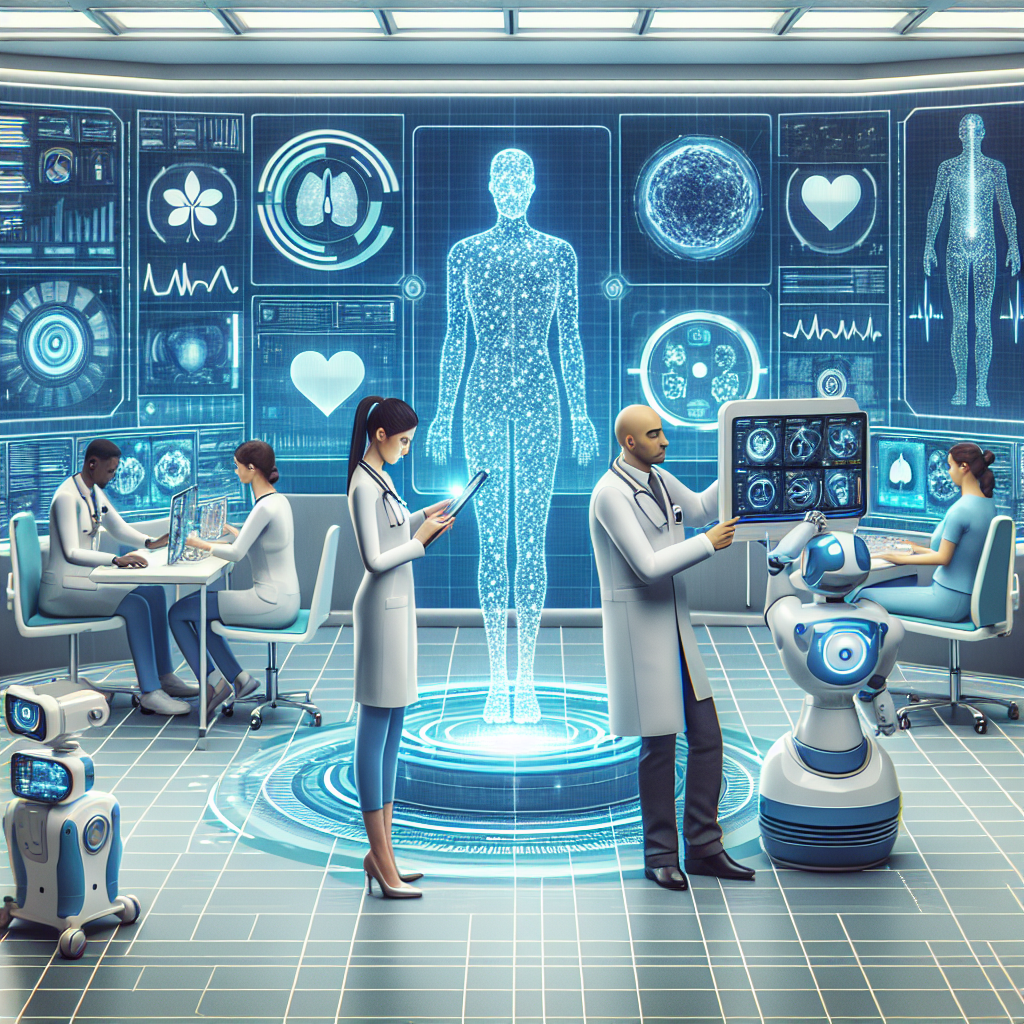Artificial Intelligence (AI) is revolutionizing the healthcare industry by enhancing decision support systems and improving patient care. AI integration in healthcare decision support systems has the potential to transform the way medical professionals make clinical decisions, diagnose diseases, and treat patients. This article will explore the benefits of AI integration in healthcare decision support and discuss how it is being used in various healthcare settings.
Benefits of AI Integration in Healthcare Decision Support
1. Improved Accuracy and Efficiency: AI algorithms can analyze vast amounts of data quickly and accurately, leading to more precise diagnoses and treatment plans. This can help healthcare providers make better decisions and provide more personalized care to patients.
2. Early Disease Detection: AI can analyze patient data in real-time to identify early signs of disease or health deterioration. This allows for early intervention and treatment, ultimately improving patient outcomes.
3. Predictive Analytics: AI algorithms can predict patient outcomes based on historical data and clinical parameters. This helps healthcare providers make informed decisions and improve patient care.
4. Personalized Medicine: AI can analyze a patient’s genetic makeup, medical history, and lifestyle factors to recommend personalized treatment plans. This tailored approach to healthcare can lead to better outcomes and improved patient satisfaction.
5. Cost Savings: By streamlining processes and reducing errors, AI integration in healthcare decision support can lead to cost savings for healthcare providers and patients alike. This can help reduce healthcare costs and improve access to quality care.
AI Integration in Healthcare Decision Support Applications
1. Diagnostic Imaging: AI algorithms can analyze medical images, such as X-rays, MRIs, and CT scans, to assist radiologists in detecting abnormalities and making accurate diagnoses. This can help reduce the time it takes to interpret imaging results and improve patient outcomes.
2. Drug Discovery: AI can analyze vast amounts of data to identify potential drug candidates and predict their efficacy and safety profiles. This can help pharmaceutical companies accelerate the drug development process and bring new treatments to market faster.
3. Clinical Decision Support: AI algorithms can analyze patient data, medical records, and treatment guidelines to provide healthcare providers with evidence-based recommendations for diagnosis, treatment, and monitoring. This can help improve clinical outcomes and reduce errors in patient care.
4. Remote Monitoring: AI-powered devices and wearables can monitor patients’ vital signs, activity levels, and medication adherence remotely. This can help healthcare providers track patients’ progress, identify potential issues early, and intervene when necessary.
5. Telemedicine: AI chatbots and virtual assistants can provide patients with personalized medical advice, appointment scheduling, and medication reminders. This can improve patient engagement, reduce administrative burdens on healthcare providers, and enhance the overall patient experience.
Frequently Asked Questions (FAQs)
Q: How can AI improve patient outcomes in healthcare decision support?
A: AI can improve patient outcomes by providing healthcare providers with more accurate and timely information to make informed decisions. This can lead to better diagnoses, personalized treatment plans, and earlier interventions for patients.
Q: Is AI integration in healthcare decision support secure and compliant with privacy regulations?
A: Healthcare providers must ensure that AI systems comply with data privacy regulations, such as the Health Insurance Portability and Accountability Act (HIPAA). By implementing secure data storage and encryption protocols, healthcare organizations can protect patient data and maintain compliance with privacy regulations.
Q: How can healthcare providers integrate AI into their existing decision support systems?
A: Healthcare providers can integrate AI into their existing decision support systems by partnering with AI vendors, investing in AI training for staff, and implementing AI-powered tools and technologies. By leveraging AI solutions, healthcare providers can enhance their decision-making processes and improve patient care.
Q: What are the challenges of AI integration in healthcare decision support?
A: Some challenges of AI integration in healthcare decision support include data quality issues, lack of interoperability between systems, and resistance to change from healthcare providers. Overcoming these challenges requires strong leadership, investment in technology infrastructure, and ongoing training and education for staff.
Q: How can patients benefit from AI integration in healthcare decision support?
A: Patients can benefit from AI integration in healthcare decision support by receiving more personalized and timely care, improved access to healthcare services, and better communication with healthcare providers. AI can help patients make informed decisions about their health and well-being, leading to better outcomes and increased satisfaction with their healthcare experience.
In conclusion, AI integration in healthcare decision support has the potential to revolutionize the way healthcare providers make clinical decisions, diagnose diseases, and treat patients. By leveraging AI algorithms and technologies, healthcare organizations can improve patient outcomes, reduce costs, and enhance the overall quality of care. As AI continues to advance, it is essential for healthcare providers to stay informed about the latest developments and trends in AI integration to maximize its benefits and improve patient care.

